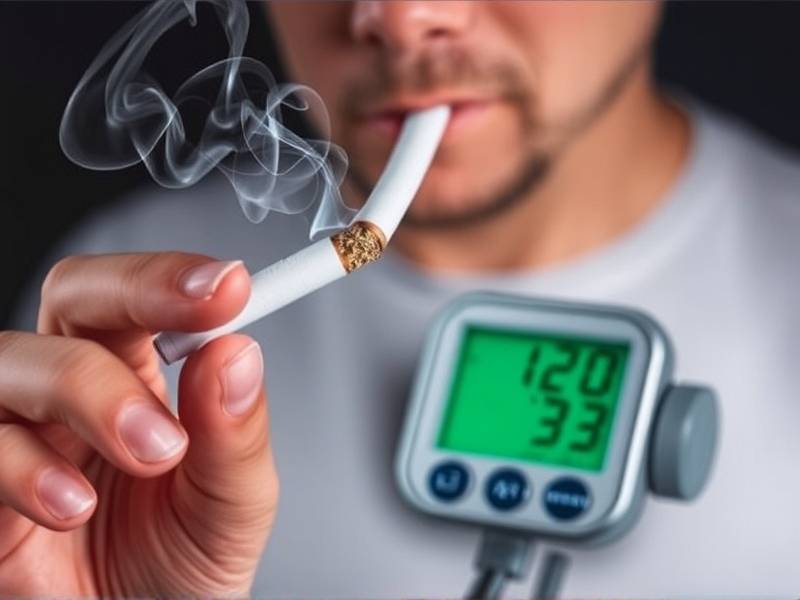Can Quitting Smoking Cold Turkey Really Cause High Blood Pressure?
Can Quitting Smoking Cold Turkey Really Cause High Blood Pressure?
Introduction: Quitting smoking is a challenging endeavor, and many individuals opt for the cold turkey method to kick the habit. However, one concern that often arises is whether quitting smoking cold turkey can lead to high blood pressure. In this article, we will explore this topic and provide insights based on scientific research and expert opinions.
Understanding the Cold Turkey Method

The cold turkey method involves quitting smoking abruptly without any form of nicotine replacement therapy or medication. While it can be effective for some individuals, it is important to understand that quitting smoking is not a one-size-fits-all solution.

The Link Between Quitting Smoking and High Blood Pressure
Research suggests that quitting smoking can indeed cause a temporary increase in blood pressure. This is primarily due to the body's withdrawal from nicotine, which acts as a stimulant and can constrict blood vessels. The initial rise in blood pressure typically occurs within the first few days of quitting and usually stabilizes within a few weeks.
Temporary Increase in Blood Pressure
It's important to note that the increase in blood pressure caused by quitting smoking is usually temporary. Most individuals experience a return to their pre-quitting levels within a few weeks. However, it's essential to monitor blood pressure closely during this period, especially for those with pre-existing hypertension.
Factors Influencing Blood Pressure Changes
Several factors can influence how much blood pressure increases after quitting smoking cold turkey:
- Age: Younger individuals may experience a smaller increase in blood pressure compared to older adults.
- Duration of Smoking: Individuals who have smoked for a shorter duration may see quicker improvements in their blood pressure compared to long-term smokers.
- Genetic Factors: Some individuals may be more susceptible to increased blood pressure after quitting due to genetic predisposition.
- Diet and Exercise: Adopting a healthy lifestyle, including proper nutrition and regular physical activity, can help manage any temporary increases in blood pressure.
Alternative Methods for Quitting Smoking
If you're concerned about high blood pressure after quitting smoking cold turkey, you may consider alternative methods such as:
- Nicotine Replacement Therapy (NRT): NRT products like gum, patches, lozenges, or inhalers provide controlled doses of nicotine while reducing withdrawal symptoms.
- Medications: Certain medications prescribed by healthcare professionals can help alleviate withdrawal symptoms and reduce cravings.
- Behavioral Support: Enrolling in a quit-smoking program or seeking support from friends, family, or support groups can enhance your chances of success.
Conclusion:
While quitting smoking cold turkey may cause a temporary increase in blood pressure for some individuals, most people experience improvements within a few weeks. It's important to monitor your blood pressure closely during this period and adopt healthy lifestyle habits to manage any potential increases. If you're considering quitting smoking, consult with your healthcare provider for personalized advice on the best method suited for your needs.
Remember that the benefits of quitting smoking far outweigh any temporary side effects or concerns you may have regarding high blood pressure. Embrace your journey towards better health and well-being!
